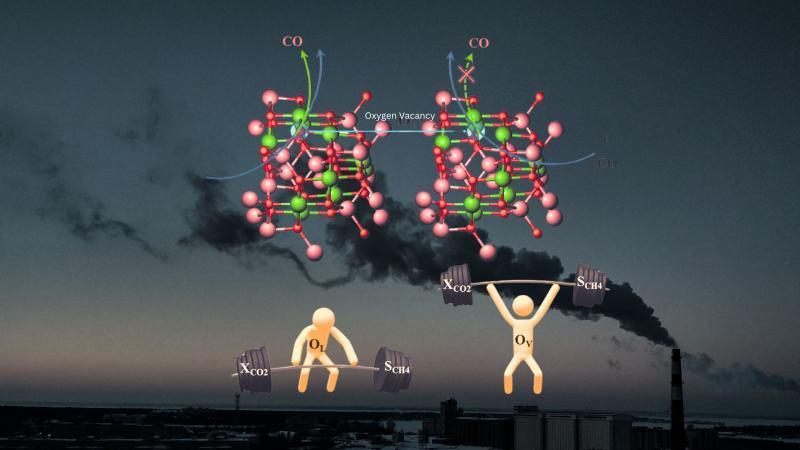
Scientists Develop Ni-Co Catalyst to Convert CO2 into Methane
In a significant breakthrough, scientists have developed a novel Ni-Co catalyst that can efficiently convert carbon dioxide (CO2) into methane (CH4), a cleaner-burning fuel. This innovation has the potential to significantly reduce emissions and support a cleaner energy future, aligning with global net-zero ambitions.
As the world continues to grapple with the challenges of climate change, the need for sustainable and environmentally friendly energy solutions has never been more pressing. Carbon capture, utilization, and storage (CCUS) technologies have emerged as a crucial component of this effort, enabling the transformation of CO2 into valuable chemical products and fuels. However, the development of efficient and cost-effective catalysts remains a significant bottleneck in the widespread adoption of CCUS.
The new Ni-Co catalyst, developed by a team of researchers from the Indian Institute of Technology (IIT) Madras, promises to overcome this hurdle. By leveraging the unique properties of nickel (Ni) and cobalt oxide (CoOx), the catalyst enables the efficient conversion of CO2 into methane, a process that is critical for reducing emissions and supporting a cleaner energy future.
The Science Behind the Catalyst
The Ni-Co catalyst is based on the principle of hydrogen splitting, where hydrogen atoms are split from water molecules (H2O) to produce hydrogen gas (H2). In the presence of CO2, the hydrogen gas reacts with the CO2 to form methane, a cleaner-burning fuel. The key to the catalyst’s efficiency lies in the synergistic combination of nickel and cobalt oxide.
Nickel, a transition metal, plays a crucial role in boosting hydrogen splitting, allowing for the efficient production of hydrogen gas. Cobalt oxide, on the other hand, creates oxygen vacancies, which serve as anchoring sites for CO2 molecules. This unique combination enables the catalyst to efficiently convert CO2 into methane, a process that is both efficient and cost-effective.
Implications for Climate Change Mitigation
The Ni-Co catalyst has significant implications for climate change mitigation, as it offers a viable solution for reducing emissions and supporting a cleaner energy future. By converting CO2 into methane, the catalyst can help reduce the amount of CO2 in the atmosphere, which is a critical step in mitigating the effects of climate change.
Furthermore, the catalyst has the potential to support the development of a low-carbon economy, by providing a sustainable source of fuel for power generation and transportation. With the global energy sector responsible for over 60% of CO2 emissions, the widespread adoption of CCUS technologies like the Ni-Co catalyst is essential for achieving global net-zero ambitions.
Future Directions and Challenges
While the Ni-Co catalyst represents a significant breakthrough in the field of CCUS, there are still several challenges that need to be addressed before it can be scaled up for commercial use. These include:
- Scalability: The catalyst needs to be scaled up to commercial levels, which requires significant advances in materials synthesis and processing.
- Cost-effectiveness: The catalyst needs to be cost-effective, which requires reducing production costs and improving efficiency.
- Stability: The catalyst needs to be stable over long periods, which requires advances in materials science and engineering.
Despite these challenges, the Ni-Co catalyst represents a significant step forward in the development of CCUS technologies. As researchers continue to work on addressing the challenges associated with commercialization, this catalyst has the potential to play a critical role in reducing emissions and supporting a cleaner energy future.
Conclusion
In conclusion, the development of a Ni-Co catalyst that can efficiently convert CO2 into methane is a significant breakthrough in the field of CCUS. By leveraging the unique properties of nickel and cobalt oxide, the catalyst offers a viable solution for reducing emissions and supporting a cleaner energy future. As researchers continue to work on scaling up the catalyst for commercial use, this technology has the potential to play a critical role in achieving global net-zero ambitions.
Source
https://researchmatters.in/news/new-nickel-cobalt-catalyst-convert-carbon-dioxide-cleaner-fuel






